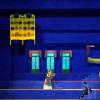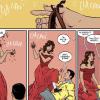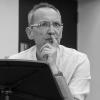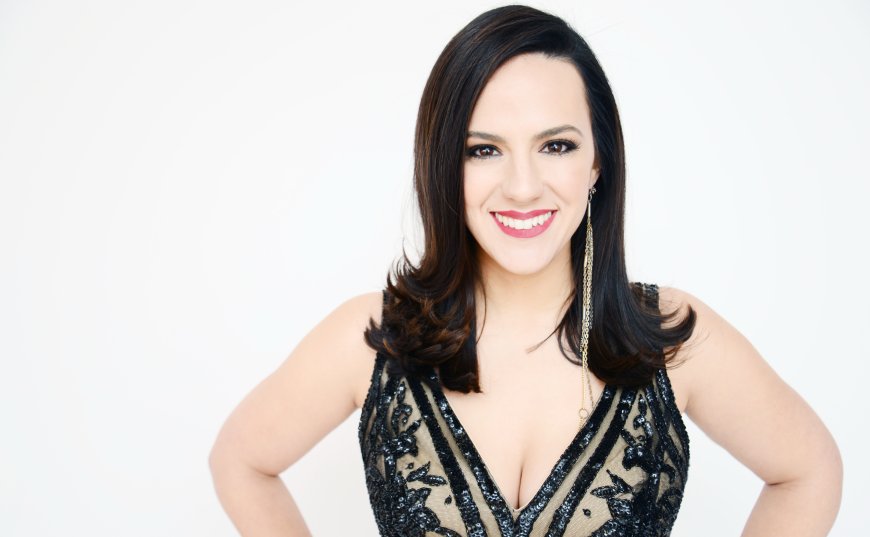
Mezzo-soprano Daniela Mack is not only riding the crest of a huge operatic wave but also leading the vanguard of a new generation of opera performers, infusing her artistry with a blend of passion, adventurousness, and natural charisma.
She will once again grace the stage of the Dorothy Chandler Pavilion when she steps into the role of Federico García Lorca in Los Angeles Opera’s production of Osvaldo Golijov’s Ainadamar, which runs April 26 – May 18. This will be Mack’s third time singing Lorca, having performed the part with the Metropolitan Opera last fall and Detroit Opera in 2023.
Born in Buenos Aires, Argentina, Mack moved with her family to Texas at age 6 and began piano lessons. She studied voice at Louisiana State University and was then accepted into the San Francisco Opera-affiliated Merola Opera Program, after which she was named an Adler Fellow in 2008. As an Adler alum, Mack has appeared at SF Opera numerous times, including in Mozart’s Idomeneo as Idamante, a role she covered in 2008 and which she reprises in the company’s upcoming revival, June 14–25.
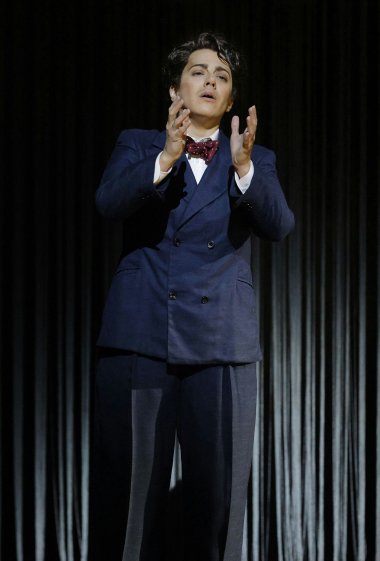
In addition to performing the standard operatic repertory, Mack, now 43 and living in the Bay Area, has created lead roles in the world premieres of Kevin Puts and Mark Campbell’s Elizabeth Cree at Opera Philadelphia and David T. Little and Royce Vavrek’s JFK at Fort Worth Opera. She has also sung with the Los Angeles Philharmonic in Manuel de Falla’s La vida breve under the baton of the late Rafael Frühbeck de Burgos.
SF Classical Voice caught up with Mack by phone from Chicago, where she was performing in the world premiere of Missy Mazzoli and Vavrek’s The Listeners at Lyric Opera of Chicago. We took a deep dive into Ainadamar and talked about what she finds most fulfilling about being an opera singer. This conversation has been edited for concision and clarity.
You made your LA Opera debut in 2012 as Nancy in Benjamin Britten’s Albert Herring and returned in 2023 as Frida Kahlo in Gabriela Lena Frank’s El último sueño de Frida y Diego. Now you’re singing Lorca in Ainadamar. What keeps you coming back?
I love the energy of the company, [and] I love the programs they do. They present really interesting, different works that can appeal to a large group of people, [so] I’m over the moon in every conceivable way. And stepping into the shoes of iconic characters — Frida, Lorca, Jackie [Kennedy in JFK] — remains my greatest honor.
Lorca was the most prominent and prolific Spanish-speaking playwright [of the 20th century], and he had a brilliant mind. I’m excited to see what people react to [in Ainadamar]. Singing the role at the Met was an unbelievably special experience for me. The piece is so multifaceted, and to be a part of a collective of artists that is so diverse, all involved and giving everything for this piece, is really special.
Singing onstage in my native language is an immense gift. Being an Argentine and able to perform a work by an Argentine composer — there are so many reasons the piece is deeply significant for me. And it’s absolutely relevant with what we’re experiencing in society today. Lorca was a poet that led everything he did with love and celebrated freedom.
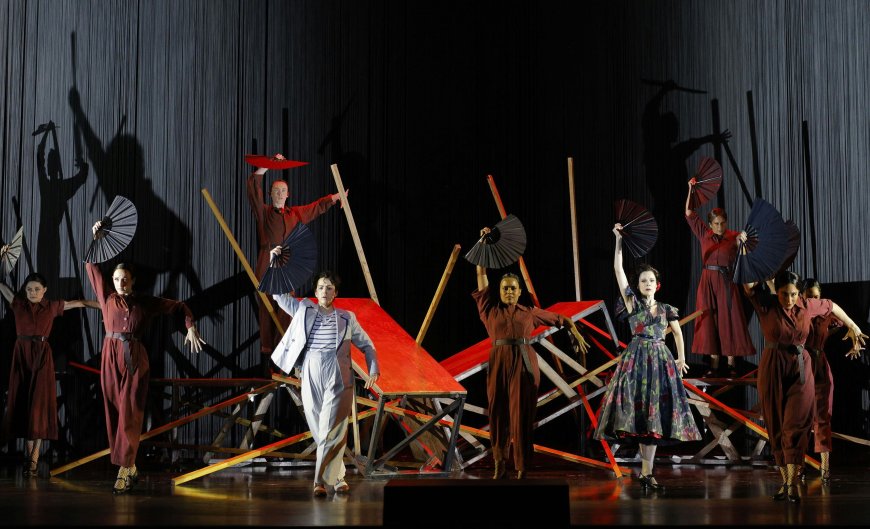
In reviewing the opera at the Met last October, The New York Times wrote that “Mack, with a creamily rich sound, lends the part true heft, while appearing uncannily like Lorca.” What do you make of that?
That’s the magic of the theater. That’s a great compliment, to look like Lorca. With this piece, I’ve stepped into the shoes of someone so recognizable, important to so many people. The nervousness, the trepidation on my end, [is that] I want to portray the character as faithfully as I can. This piece is not a biography of his life, and it’s not a linear story, so [fortunately] the pressure is off to be some sort of imitation.
The wonderful design team and hair and makeup are all at the highest level [and] help create a piece that really evokes his energy. Putting that [costume] on sheds a layer of myself and helps me to embody him in a different way. Because this whole story is told through [Lorca’s muse], Margarita Xirgu, and her memories, it’s not me [recreating] in real time a moment from Lorca’s life. But it is a challenge channeling his essence and being a vehicle for what he stood for. It’s an energy thing, rather than a carbon copy.
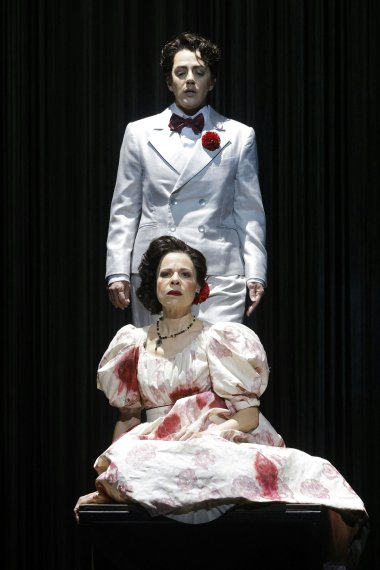
Ainadamar, which means “fountain of tears” and refers to the site near Granada, Spain, where Lorca was executed in 1936, features flamenco, choreographed by Antonio Najarro. I’m wondering what your thoughts are on the flamenco idea of duende — soul — in this opera?
Duende is inherent in the piece. It’s inexplicable, but every time you have this marriage of artists with a theme that is so deep and poignant, the potential to find duende is great indeed. Everybody feels a sense of connection. The central force in this piece is emblematic of love and Lorca himself and how he moved through the world. [The current moment is] a time of great political and social upheaval. [Lorca] suffered greatly, and we find ourselves in many ways in a similar time. The love we channel in this piece is the saving grace.
I’m wondering if there’s a difference in how you tackle a new opera versus a classic like Carmen.
I don’t approach the technicality of singing in a different way. Whether it’s a new opera or something classic, I try to sing every role that is presented to me with my voice. I respect the people who cast and choose certain singers for certain pieces very intentionally. I’ve felt supported in that way and [like I’m] doing what’s right for my voice.
In terms of study, there’s a free element in working on something more contemporary. It doesn’t carry the legacy of so many singers that have come before me. Often with contemporary operas, there isn’t a recording. [But when I’m] learning Donizetti, I have oodles to choose from. There [are certain characterizations] in people’s ears already. Opera lovers, inadvertently or not, expect to hear a certain sound. Doing contemporary opera, that doesn’t come into play at all. I feel free to be who I am and maybe bring more of who I am because it’s written for my voice.
That’s a whole other amazing experience in itself. It’s a great privilege to have the composer and librettist present in the room and have a dialogue, to have them ask you, “What does your voice like to do? Where does it ring the most?” That’s an unbelievable luxury with operas being created right now.

Curiously, you covered the role of Idamante in SF Opera’s 2008 production of Idomeneo and ended up going on, replacing the scheduled mezzo-soprano, Alice Coote. What was that like for you as a first year Adler Fellow, and do you feel like you’re coming full circle with this part by singing it again with the company in June?
I have a few memories from that first iteration of Idomeneo covering Alice, who was there from the beginning of the rehearsal process, [so] I didn’t get to walk the role much at all. She’s one of the most brilliant singing actresses in this art form today. I learned so much from her but never expected I would have to replicate it. But she canceled the last three performances with very late notice, and I was thrown in.
I remember the anxiety of it. It was a whirlwind, but I couldn’t tell you how I sang. I was trying desperately to stay with the conductor’s beat, to sing this difficult music [as well as] my technique would allow in the moment. The role of Idamante is difficult, [and] you don’t get a chance to step out and feel your way through the acoustics. It’s not how I would have preferred to make my [first] foray onto the [War Memorial Opera House] stage.
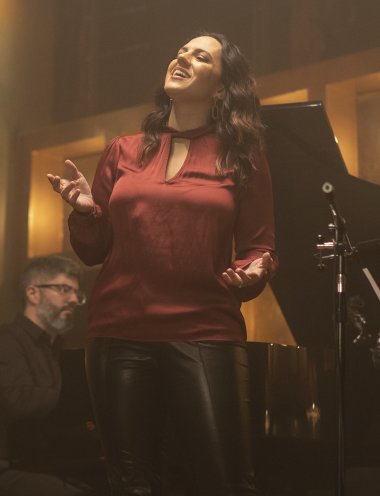
I’ve been there many times since, and I have to say I wasn’t sure the opportunity to repeat the role would come back to me, but I’m thrilled it has come back around. It’s been many years since that first trial by fire, and I have personally lived a lot of life. I have experienced grief and the loss of people closest to me. I have become a mother. I have grown so much. Now I feel prepared to take on the person of Idamante. I don’t think I was quite ready when I had my first shot [at the character]. I’m grateful to San Francisco Opera. That stage feels like my musical home.
What are the most difficult and most fulfilling things about being an opera singer?
Being away from my family. I have two little girls who are amazing, and children change our lives so radically. One of the main reasons these days I can connect so deeply to work onstage [is that] being a mom has opened my heart in so many ways. I love them so very much, [and] missing much of their lives is so very difficult.
[As for what’s] rewarding, I love every part of what I do. I truly believe that I have found my voice through this art form, literally and figuratively. I think there’s so much of myself that I guard. [But] the moment that I step into the rehearsal room and play and discover other ways of being — interacting with people [how I perhaps wouldn’t] interact with them in my daily life — that broadens my scope of what I’m capable of doing.
Being a singing actor has just made me who I am in many ways. I think that other than being with my family, being in the theater is the safest that I feel. It makes me feel absolutely in the right place in my life.


